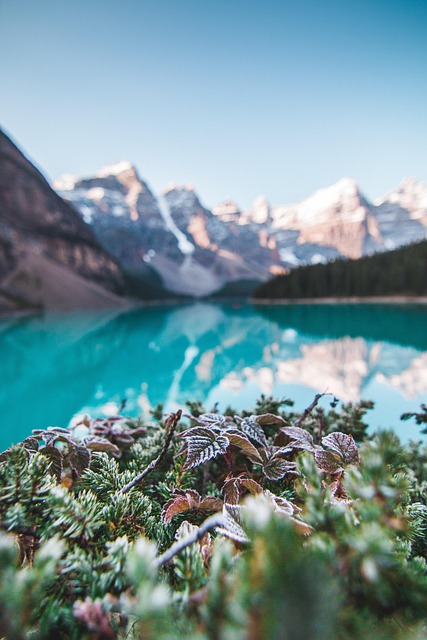
Camping Safety: Tips and Precautions for a Secure Outdoor Experience
Camping is a wonderful way to connect with nature and enjoy the great outdoors. Whether you are embarking on a solo adventure or camping with family and friends, it is essential to prioritize safety to ensure a secure and enjoyable experience. By following some simple tips and taking necessary precautions, you can minimize risks and make the most out of your camping trip.
Choosing the Right Campsite
Selecting a suitable campsite is the first step in ensuring safety during your camping trip. Consider the following factors when choosing your campsite:
1. Location: Look for a well-established campground that is popular among campers. These sites are often well-maintained and have necessary amenities like fire pits and secure restroom facilities. Additionally, they tend to have a staff that ensures the safety of campers.
2. Terrain: Avoid camping in areas with steep slopes, loose rocks, or dense vegetation. Look for a flat and open space that is free from potential hazards such as falling branches or rocks.
3. Weather conditions: Check the weather forecast before heading out and be mindful of severe weather conditions like storms or strong winds. It is also essential to understand the potential risks of the area, such as flash floods or forest fires.
4. Access to water: Make sure there is a nearby water source for drinking, cooking, and cleaning. However, be cautious of camping too close to bodies of water, as the risk of flooding or sudden rise in water levels can be dangerous.
5. Wildlife presence: Research the local wildlife in the area and take necessary precautions. Keep food securely stored, away from your campsite, to avoid attracting wildlife, and always respect their natural habitat.
Essential Camping Equipment
Having the right equipment is an integral part of camping safety. Here are some essential items you should have:
1. Tent: Choose a tent that is appropriate for the weather conditions you will be camping in. Ensure it is in good condition and properly set up to protect you from the elements.
2. Sleeping bags and bedding: Invest in quality sleeping bags suitable for the temperature range of your camping location. Extra blankets or sleeping pads can provide additional insulation and comfort.
3. Lighting: Pack flashlights, lanterns, or headlamps with extra batteries. Adequate lighting will help you navigate through the campsite at night and prevent potential accidents.
4. First aid kit: Always carry a well-stocked first aid kit containing essentials like bandages, antiseptic wipes, pain relievers, and any personal medications. Be prepared for minor injuries or illnesses that may occur during your camping trip.
5. Cooking utensils: Bring camping stoves or grills, along with appropriate cookware and utensils. Remember to follow proper safety procedures when dealing with open flames and ensure proper ventilation.
Fire Safety
Campfires are an integral part of camping, but they can also pose significant risks if not handled properly. Follow these fire safety precautions:
1. Campfire regulations: Check with the campground staff or local authorities about any restrictions or guidelines regarding campfires. Observe these regulations to prevent wildfires and protect the natural environment.
2. Fire pit safety: Only use designated fire pits and ensure they are clear of flammable materials, including dry leaves and branches. Keep a bucket of water and a fire extinguisher nearby for emergencies.
3. Safe distance: Maintain a safe distance from the fire, especially children and pets. Keep loose clothing and flammable materials away from the flames.
4. Extinguishing the fire: Never leave a campfire unattended, and always completely extinguish it before leaving or going to sleep. Pour water over the fire, stir the ashes, and continue to add water until it is cool to the touch.
Personal Safety Measures
Apart from general camping safety, it is essential to take personal safety measures to ensure a secure outdoor experience. Consider the following:
1. Communication: Let a trusted family member or friend know about your camping plans, including the location and duration of your trip. Establish a method of communication in case of emergencies, especially if you will be camping in remote areas with limited cell service.
2. Navigation tools: Carry a map, compass, or GPS device to help you navigate the area safely. Familiarize yourself with the surrounding landscape and plan your activities accordingly.
3. Insect protection: Protect yourself from insects, especially ticks and mosquitoes, by wearing appropriate clothing, using insect repellent, and checking your body for ticks regularly.
4. Hydration and sun protection: Stay hydrated by drinking plenty of water and protect yourself from the sun’s harmful rays by wearing sunscreen, a hat, and sunglasses. Heatstroke and sunburn can be serious outdoor hazards.
Remember, camping can be a memorable experience if you prioritize safety. By following these tips and taking necessary precautions, you can enjoy a secure and enjoyable time in the great outdoors. Stay safe and have a fantastic camping adventure!
Hashtags: #campingsafety #outdoorsafety #campingtips #campingprecautions #campingadventure #campingessentials
Camping Essentials: Gear and Tips for a Comfortable Outdoor Experience